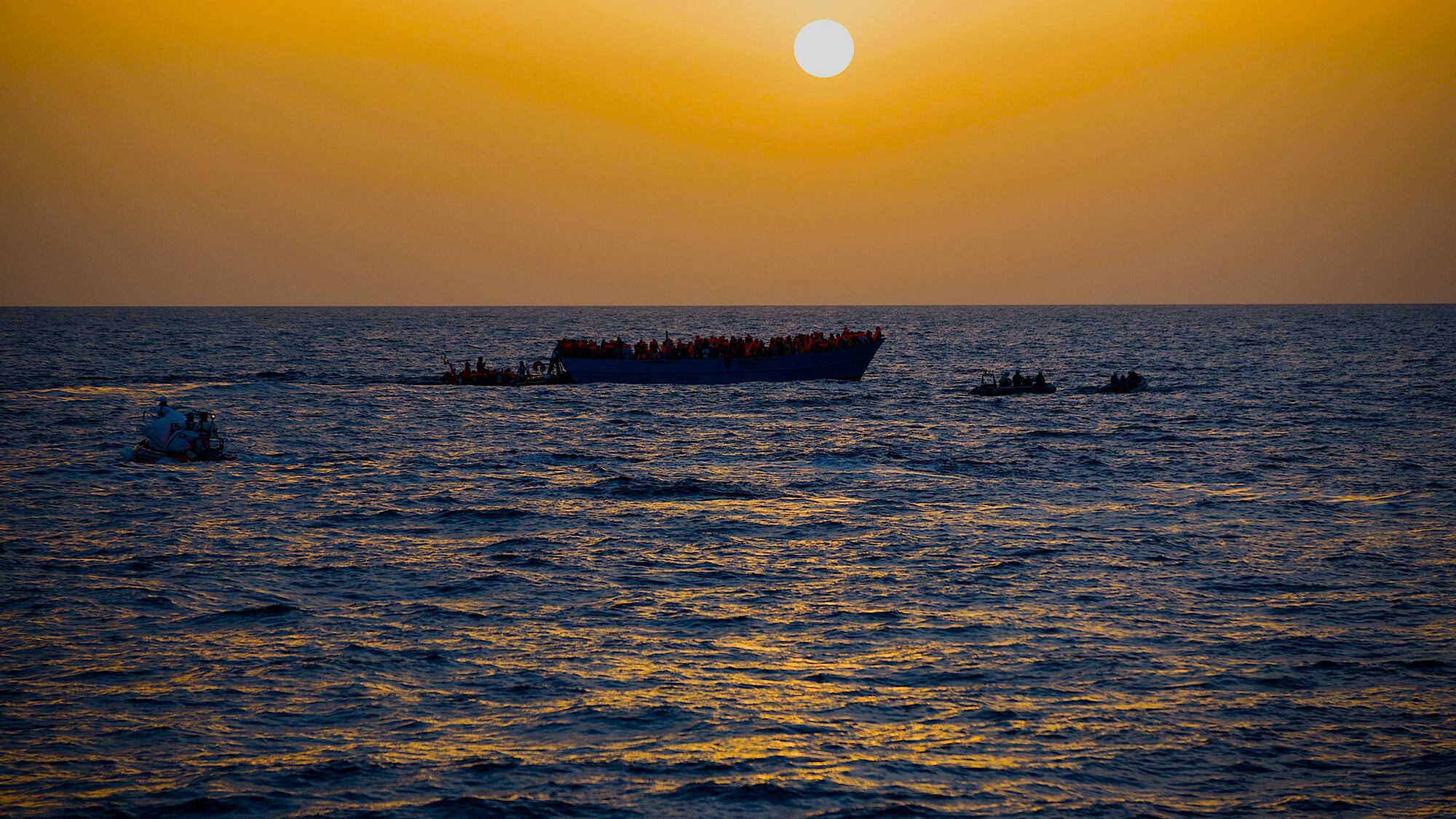Skye Fitzgerald, whose documentary short Lifeboat has been nominated for an Academy Award, never set out for fame. The director grew up in rural Monument, Ore., without electricity or running water, earned an MFA at the University of Oregon and embarked on a career making films that highlight social injustice around the globe. His latest Oscar-contending movie depicts efforts to save desperate migrants from drowning off the coast of Libya. As Fitzgerald awaits the ceremony, he sat down with Willamette Week to discuss that project.
WW: So, you're up for an Oscar.
Skye Fitzgerald: It's always a surprise. You hope a film will land and resonate with your colleagues, but you never really know the path it's going to take. We didn't expect to make the cut, but we were certainly thrilled.
Your last film was also shortlisted?
Yep. We're kind of two for two with this trilogy so, obviously, we're really honored by that.
Trilogy?
We're doing three short docs called "The Refugee Trilogy" about the global refugee crisis in a different part of the world seen from the inside out [with the film crew] embedded in the crisis unfolding around us.
How did this all start?
In 2015, we did a film called 50 Feet From Syria about a Syrian-American orthopedic surgeon in Lake Oswego who traveled to operate on refugees coming across the border from Syria into Turkey.
Where'd you find him?
I broke my hand in a bicycle race [laughs] and he was my surgeon. It took me three months to get the appointment. Hand specialists are in such high demand they literally book these guys in 10-minute blocks. They're typically in and out really, really fast. He walks into the examining room, says, "Yeah, you need surgery," and somehow we segue into a conversation about the Syrian conflict.
I'll never forget—after a couple of minutes, he stands up, pulls the privacy curtain around us, and then we talk for almost an hour. At the end, I handed him my card and said, "If you ever go back, give me a call." About six months later, he sent an email, saying he'd decided to volunteer with the Syrian American Medical Society. So I went with my team, and we filmed the whole process.
Were there always plans for a trilogy?
I don't know what I initially conceived, because 50 Feet came pretty organically from that conversation between Dr. [Hisham] Bismar and myself, but while in production, I saw the scale of the refugee tragedy playing out in Turkey and Syria. During all the conversations with NGOs, it occurred to me the same stories we faced firsthand were taking place all over the Middle East, Mexico and many other places.
And how did Lifeboat specifically come about?
As soon as the EU closed down the border into Greece, other doctors told us that the flow would just change course. Three of them said the next great loss of life was likely to be in the central Mediterranean. The war and other reasons motivating the refugees' move from one area to another wasn't going away. I started researching and very quickly discovered that some small civil society groups were already trying to save the lives of the people drowning as they tried this really dangerous crossing. The more I learned, the more inspiring I found it, and that was the beginning of the second film.
Any ideas for the third film?
I'm doing due diligence on that right now. Access is everything. You can't just jump on a search-and-rescue boat off the coast of Libya without carefully building relationships beforehand, because the nature of the work is, frankly, very dangerous. Since that's so delicate, I'm a little reticent to talk about the details, but we hope to film in the Middle East in 2019.
Will it be the same kind of film?
I do a very particular kind of human rights documentary. In terms of aesthetics, there's a lot of overlap, but based on where we were and what we were doing, they're very different as well. I've always been interested in pressing problems throughout the world, and those stories often aren't mainstream. They won't necessarily be heard unless you really go out and make an effort. If you make someone feel what the refugee experiences on some level for even a fleeting moment, that's going to have far more impact than trying to contextualize how the politics came to be. Touch the heart, access an issue in a really visceral way, then it moves into the brain through a different path.
